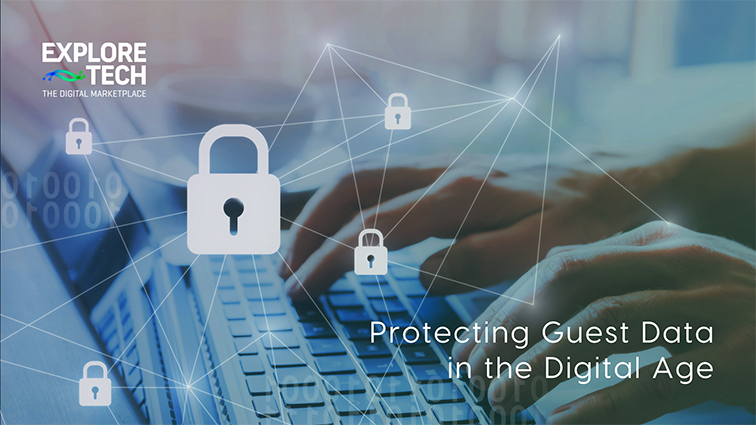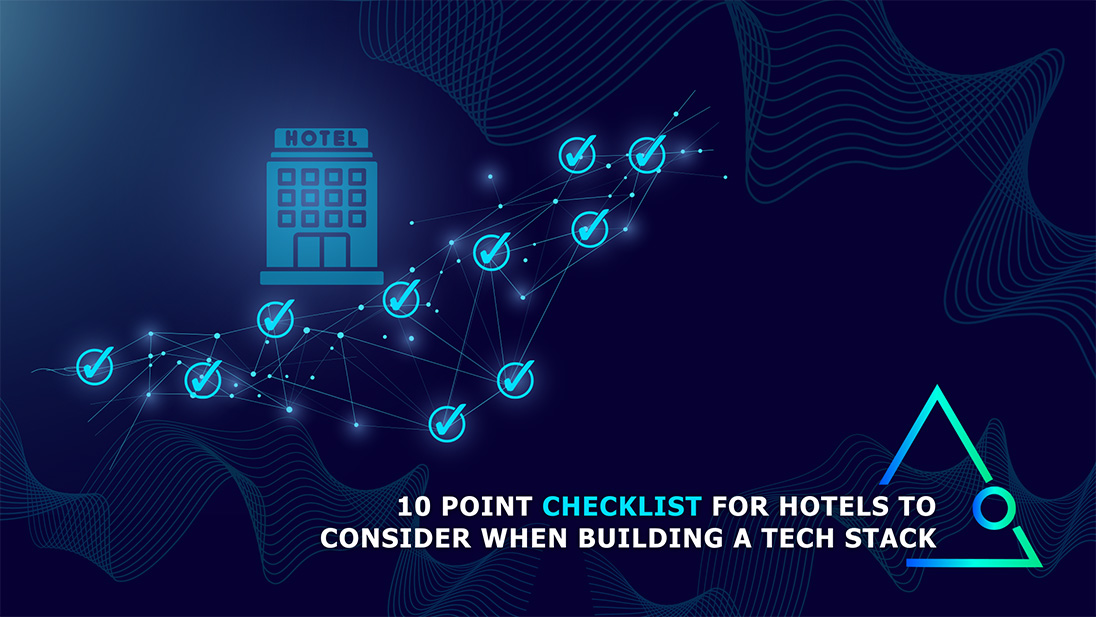
Safeguarding Guest Information
As hotels embrace digital transformation, the need for comprehensive cybersecurity solutions intensifies. Here, we delve into strategies to fortify hotel networks, secure guest data, and mitigate cyber risks.
Hotel Guest Data Protection: A Top Priority for Hotels
Hoteliers must prioritize the protection of guest data to build trust and loyalty. Implementing robust data protection measures is essential to safeguard sensitive information from unauthorized access.
Cybersecurity Systems for Hotels: Strengthening Defenses
Investing in advanced cybersecurity systems is imperative to combat evolving cyber threats. From firewalls to intrusion detection systems, hotels must deploy a multi-layered defense strategy to fortify their digital infrastructure.
How to Improve Cybersecurity in Hotels?
Best Practices for Hotels
Improving cybersecurity in hotels requires a comprehensive approach that encompasses regular security assessments, staff training, and the adoption of best practices. Here are some strategies to enhance cybersecurity in hotels:
Regular Security Assessments and Audits:
Conduct frequent assessments and audits to identify vulnerabilities and ensure compliance with industry regulations.
Staff Training on Cybersecurity Awareness and Protocols:
Provide comprehensive training to staff on recognizing and responding to security threats effectively.
Access Control and User Privileges Management:
Implement strict access controls and user privileges management to prevent unauthorized access.
Data Encryption and Secure Transmission Protocols:
Encrypt sensitive data both at rest and in transit using SSL/TLS protocols to protect guest information.
Patch Management and Software Updates:
Maintain up-to-date software systems with the latest security patches to mitigate known vulnerabilities.
Effective Hotel Cybersecurity Practices to Protect Guest Information
Encrypting guest data during transmission and storage adds an extra layer of protection against unauthorized access. Additionally, implementing access controls and monitoring systems helps detect and mitigate security breaches promptly.
Advanced Cybersecurity Technologies for Hotel Safety
Embracing innovative technologies such as AI-driven threat detection and biometric authentication enhances the resilience of hotel cybersecurity defenses. Investing in robust encryption algorithms and secure communication protocols is vital to staying ahead of cyber threats.
Challenges of Cybersecurity in the Hotel Industry
The interconnected nature of hotel operations, coupled with the diversity of guest devices accessing the network, presents unique cybersecurity challenges. Overcoming these challenges requires proactive risk management and collaboration across departments.
Hotel Network Security Protocols and Best Practices
Implementing stringent network security protocols, such as VLAN segmentation and network segmentation, helps minimize the impact of security breaches and isolate potential threats.
Data Encryption in the Hotel Sector: Protecting Confidential Information
Encrypting sensitive data using industry-standard encryption algorithms safeguards guest information from unauthorized access, ensuring compliance with data privacy regulations.
Risk Assessment for Hotel Digital Infrastructure
Conducting regular risk assessments allows hotels to identify vulnerabilities and prioritize security investments. Addressing potential risks proactively minimizes the likelihood of data breaches and operational disruptions.
Compliance with Data Security Regulations in Hotels
Adhering to stringent data security regulations, such as GDPR and PCI DSS, is crucial for hotels handling guest data. Compliance not only mitigates regulatory risks but also enhances trust and credibility among guests.
Hotel Cyber Attack Prevention: Strategies for Hotels
Implementing robust firewall solutions and intrusion prevention systems helps thwart cyber attacks targeting hotel networks. Regular security updates and patches mitigate known vulnerabilities and reduce the attack surface.
Secure Wi-Fi Systems for Hotel Guests: Ensuring Safe Connectivity
Offering secure Wi-Fi networks with encryption protocols and guest isolation features protects guests' devices from potential cyber threats. Promoting cybersecurity awareness among guests encourages responsible online behavior.
Cybersecurity Training for Hotel Staff: Building a Security-Conscious Culture
Providing comprehensive cybersecurity training equips hotel staff with the knowledge and skills to detect and respond to security incidents effectively. Regular training sessions and simulated phishing exercises reinforce security awareness and best practices.
Best Cybersecurity Software for Hotels: Choosing the Right Solution
With the diverse range of cybersecurity solutions available in the market, choosing a software suite that caters to the specific needs of the hospitality industry is crucial. Here, we discuss key features to consider when selecting cybersecurity software for hotels:
Centralized Management: Simplify security administration across multiple properties with a single interface.
Real-Time Monitoring: Detect and respond to threats promptly with continuous network and endpoint monitoring.
Incident Response Capabilities: Streamline incident handling with automated triage, forensics analysis, and remediation workflows.
Scalability and Flexibility: Ensure the software can adapt to changing requirements and growth without compromising performance.
Compliance and Regulatory Support: Meet industry regulations and data protection standards with built-in compliance frameworks and reporting capabilities.
The Future of Cybersecurity in the Hotel Business
Innovations in Hotel Cybersecurity
As cyber threats evolve, hotels must adopt proactive security measures and emerging technologies to stay ahead of attackers. From AI-powered threat intelligence to blockchain-based authentication, embracing innovation is key to future-proofing cybersecurity strategies.
Emerging Cybersecurity Technologies in Hospitality
To stay ahead of cybercriminals and protect guest data, hotels are increasingly turning to innovative cybersecurity technologies. Here, we explore some of the emerging technologies reshaping cybersecurity in the hospitality sector:
1. Biometric Authentication
Biometric authentication technologies, such as fingerprint scanning, facial recognition, and iris scanning, offer a secure and convenient way to authenticate guests and staff members. By replacing traditional methods like keycards and passwords, biometrics reduce the risk of unauthorized access to sensitive areas and guest information. Hotels are implementing biometric systems not only for room access but also for secure transactions at check-in counters and payment terminals.
2. IoT Security
The Internet of Things (IoT) has revolutionized guest experiences in hotels, enabling smart room features, personalized services, and efficient operations. However, the proliferation of IoT devices also introduces new cybersecurity risks, as each connected device represents a potential entry point for cyber attacks. To mitigate these risks, hotels are adopting robust IoT security solutions that include device authentication, encryption, and network segmentation. By securing IoT ecosystems, hotels can ensure the integrity and confidentiality of guest data while delivering seamless digital experiences.
3. Predictive Analytics
Predictive analytics leverages machine learning algorithms to analyze vast amounts of data and forecast future events, including cyber threats. In the hospitality industry, predictive analytics can help identify patterns indicative of malicious activities, such as unusual network traffic or unauthorized access attempts. By proactively detecting and mitigating potential threats, hotels can strengthen their cybersecurity defenses and prevent costly data breaches. Predictive analytics also enables hotels to optimize resource allocation and prioritize security measures based on real-time threat intelligence.
4. Automation
Automation plays a crucial role in streamlining cybersecurity operations and enhancing incident response capabilities. Automated tools can continuously monitor network traffic, detect anomalies, and respond to security incidents in real time, reducing the burden on IT security teams. Additionally, automation facilitates rapid incident triage and remediation, minimizing the impact of cyber attacks on hotel operations and guest experiences. By automating routine tasks such as patch management, vulnerability scanning, and security policy enforcement, hotels can improve overall security posture and resilience against emerging threats.
5. Machine Learning:
Machine learning algorithms are increasingly being deployed to bolster cybersecurity defenses by identifying patterns and anomalies indicative of cyber threats. In the hospitality sector, machine learning-powered intrusion detection systems can analyze network traffic and behavior to detect and mitigate sophisticated attacks, such as malware infections and data exfiltration attempts. Machine learning algorithms can also enhance the accuracy of threat detection and reduce false positives, enabling security teams to focus on genuine threats and vulnerabilities.
The Growing Importance of Cybersecurity in Hotel Management
Cybersecurity is no longer just an IT issue but a critical aspect of overall hotel management. Executives and board members must prioritize cybersecurity investments and ensure alignment with business objectives to mitigate risks effectively.
In conclusion, safeguarding guest data in the digital age requires a proactive approach to cybersecurity. By implementing robust Hotel Cybersecurity Solutions, hotels can protect sensitive information, build trust with guests, and uphold their reputation. As cyber threats continue to evolve, staying informed about emerging technologies and best practices is essential for maintaining a resilient security posture. Let's work together to secure the future of hospitality.

ExploreTECH Content Team
admin


